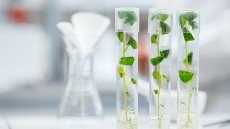What’s behind Nespresso's regen ag honey launch?

Nespresso USA has launched Nespresso Bloom: a range of honey products made via regenerative agricultural practices. It’s the brand’s first range of honey products and the first time it has gone beyond coffee, machines and accessories.
Over the last few years Nespresso has been incorporating regenerative farming practices into its coffee sourcing strategy through its AAA Sustainable Quality Program, which was developed in partnership with the Rainforest Alliance. It aims to source 95% of its coffee from regenerative farms by 2030. As of 2023, it sources 85% of Nespresso coffee from farms that employ regenerative agricultural practices.
Many consumers, meanwhile, are turning to honey to sweeten their coffee instead of sugar.
The launch of Nespresso Bloom, therefore – although a fairly soft one – serves several aims. It helps the brand reinforce its supply chain and expand its market reach beyond coffee by meeting consumer demand for alternative sweeteners and responsibly sourced products.
Nespresso: “We believe in the power of more sustainable and regenerative agriculture to protect and restore ecosystems on coffee farms. Protecting and ensuring the future of coffee also hinges on pollination and biodiversity, and because bees play an integral role in coffee cherries production, supporting a healthy bee population advances this vision.”
How bees boost productivity
The partner in the project is Ubees, a US-based company that provides beekeeping and pollination services to farmers. Since 2020, it has been integrating its beehives and monitoring technology on Nespresso AAA farms in Caldas in Columbia.
According to Nespresso, this state-of-the-art technology enables remote, real-time monitoring of the health of beehives and the pollination status of the field. Incorporating bees into farms can contribute to the reduction of chemical usage, supporting the protection of the farm's natural ecosystem, it says.
With 70 and 80% of the greenhouse emissions generated by coffee being driven by fertilization practices and farm productivity, assessing its impact at the farm level is hugely important to measuring success of Nespresso’s impact and initiatives, the brand says.
By encouraging farmers to become beekeepers, the brand therefore hopes to boost overall coffee productivity.
“Bees support the pollination of the coffee plant and can help it produce even more coffee cherries,” a spokesperson explained. “This is why we have been working with expert beekeepers to help farmers become beekeepers. This supports them with balancing their farms' natural ecosystem, promoting natural pollination of the coffee plants, and earning additional income through honey production.”
Coffee farmers can sell the byproducts from the hives, such as honey, wax and pollen. The production of honey and its by-products is estimated to have generated more than $950 in additional income per farm in 2020.
Will the consumer honey trend prove a sticky one?
Another benefit is a tasty product for the consumer. Because the honey is harvested from the same coffee blossom flowers that produce the beans of Nespresso’s coffee, “a complementary pairing is a sweet result of this partnership”, Nespresso said.
“The honey from these coffee blossoms has a very distinctive taste of dried bourbon vanilla, evolving into caramelized notes.”
With honey consumption trending upward in the US, that’s good news, and allows Nespresso an opportunity to meet peoples’ evolving taste preferences.
Consumers are “increasingly seeking innovative ways to elevate the flavour and quality of their coffee,” the spokesperson stressed, “and Nespresso Bloom provides a new alternative sweetener option for sustainability-conscious consumers.”


















